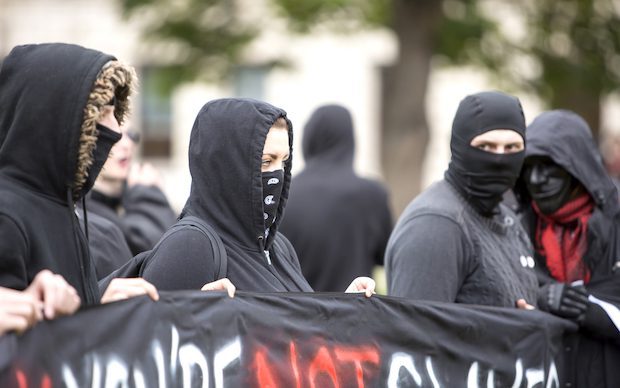The Roots Of Radicals’ Misery

Here’s a good Quillette essay by Conor Barnes about “Sad Radicals” — a breakdown of the social and personal psychology of people drawn to radical political movements. Barnes used to be one of those people (he was an anarchist), and explains it from the inside. Excerpts:
What is a radical community? For the purposes of this article, I will define it as a community that shares both an ideology of complete dissatisfaction with existing society due to its oppressive nature and a desire to radically alter or destroy that society because it cannot be redeemed by its own means. I eventually fell out with my own radical community. The ideology and the people within it had left me a burned and disillusioned wreck. As I deprogrammed, I watched a diluted version of my radical ideology explode out of academia and become fashionable: I watched the Left become woke.
Barnes says that radicalism tells you that the anxiety, the fear, the misery, and the depression you feel, is all explained by the System. This frees you from taking any responsibility for yourself, in some ways: “It’s society’s fault that I’m unhappy!” But it paradoxically makes people who buy into this paradigm entirely responsible, because they have to be extremely vigilant to uncover layer after layer of corruption within themselves and others, so it can be expelled and we can get closer to Utopia. Barnes:
The paradigm of suspicion leaves the radical exhausted and misanthropic, because any action or statement can be shown with sufficient effort to hide privilege, a microaggression, or unconscious bias. Quoted in JM, the anarchist professor Richard Day proposes “infinite responsibility”: “we can never allow ourselves to think that we are ‘done,’ that we have identified all of the sites, structures, and processes of oppression ‘out there’ or ‘in here,’ inside our own individual and group identities.” Infinite responsibility means infinite guilt, a kind of Christianity without salvation: to see power in every interaction is to see sin in every interaction. All that the activist can offer to absolve herself is Sisyphean effort until burnout. Eady’s summarization is simpler: “Everything is problematic.”
One more passage:
Radical communities select for particular personality types. They attract deeply compassionate people, especially young people attuned to the suffering inherent to existence. They attract hurt people, looking for an explanation for the pain they’ve endured. And both of these derive meaning for that suffering by attributing it to the force that they now dedicate themselves to opposing. They are no longer purely a victim, but an underdog.
However, radical communities also attract people looking for an excuse to be violent illegalists. And the surplus of vulnerable and compassionate people attracts sadists and abusers ready to exploit them. The only gatekeeping that goes on in radical communities is that of language and passion—if you can rail against capitalism in woke language, you’re in.
Read the whole thing. It’s really worth it. What Barnes is describing is a religion without God. It attempts to expiate sins by identifying more and more scapegoats. Note that Barnes says at the top of his essay that the cultish thought categories and practices of the radicals have become mainstream on the Left. Which is true. What he doesn’t mention is that it is also becoming mainstream in American corporations.
The Barnes essay reminds me of Dostoesvky’s parable of The Grand Inquisitor. In the story (from The Brothers Karamazov), the title character — a heretic-burning cardinal in late medieval Seville — confronts Christ returned to earth, and tells him to get out of town, because He is upsetting the system. The Inquisitor tells Christ that humankind can’t handle freedom. People will surrender their freedom to a system that can take care of their material needs, settle moral questions for them (so they don’t have to think about right and wrong), and work towards radical egalitarianism, where people don’t have to think about difference (because that would require them to think about whether or not they are living rightly). The Inquisitor’s system has relieved people of the burden of being fully human; he believes he is doing humankind a favor. Submit to the System, and all will be well. What does it matter if a small number of people are crushed, so long as it benefits the greater good?
This is a temptation that faces all of us. We can create an inhuman System like that within the churches — and I know just the one to do it — and without church at all, as Conor Barnes discovered.